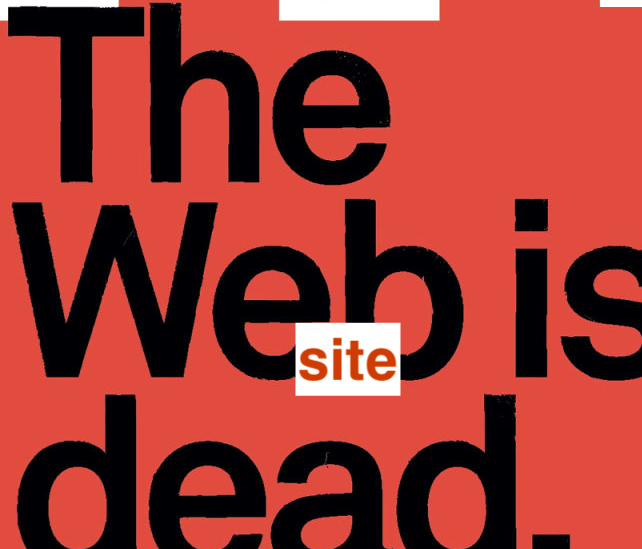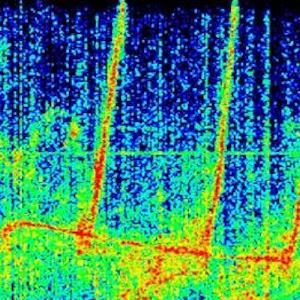The 2020 pandemic struck a fatal blow upon public space and movement - consequently slamming down on the entertainment and music industry, in ways and proportions that no one was prepared for. Spaces big and small, commercial or niche, known and unknown are already haunted. The sacred alters or commercial megaplexes, both abandoned. The everlasting notion of music through the night inside a collective space, hailed as a 'transformative experience' appears to be a thing of the past. The transformation has been global and ruthless, warping the freedom (and lifestyle) of millions and millions. The zeitgeist has hit artists and audiences alike throughout the world. As one lifestyle ceases to exist, another must replace it, for that is the continuum of industrial society. Since early 2020, as thousands of music festivals and tours were cancelled en-mass, millions of professionals and artists were left without a plan and work. But new ways and means hatched up quickly to redefine the scene, injecting great hope and the promise of continuity.
The internet and virtualisation of live music is a collusion, resulting in exponential growth. The collective spirit surrounding live music in reality has been replaced by a binary universe - made of remote observers logged inside virtual spaces. This transition ushers in a new panacea for entertainment - rapidly embraced by very many and objectively understood by very few. The traditional 'economy of labor' (playing actual music onstage) has been sequestered into an digital 'economy of attention' (posturing to virtual audiences). Pandemic or not, people still need music, still crave for collective experiences and still want to dance. This article is a short probe into the transformative value of virtual music performance, and wether is it actually capable of affecting and delivering a significant change for its participants.
Transformative Experiences.
A 'transformative experience' is an encounter, which can affect a person or a group, over a short period of time. We encountered and cherished such experiences collectively at concerts, raves and even intimate gatherings based around music and dance. That culture, which existed up till the beginning of 2020, was a significant force in the way people perceived their environment, formed social bonds and related to the transmitted music. Recall your finest moments, with your buddies at a rave in hindsight? Back then, did our worldview alter in some way or form? And it was beautiful amongst many other feelings - personally and collectively. Virtual music and performance seems to be devoid of such transformative possibilities. The concept and actualisation is bereft of certain fundamental dynamics - of movement, of inter-personal sensory exchange and of the power of sound. Currently, while researching virtualisation of live music, the experience of a DJ set raises certain meaningful observations.
A large number of DJs agree that a virtual performance transmitted over the internet, is simply not the same compared to performing in real club. In reality, our senses, regardless as an artist or audience are not curtailed inside a fixed rectangular point of view (screen). In virtual reality, given all the technological 'wow' and 'speed' we are but dominated by a restrictive and reduced universe compelling us to push buttons and navigate menus. Many DJs submit to this new transformation, simply due to the lack of choice, reeling under the force of mainstream culture. Boiler-room, way past it's prime, has become another virtual chatroom where sound plays a secondary role. The artist becomes a namesake entity. Reaction and judgement is from a distance and not based on proximity. The engagement between the artist and the audience is now governed by bandwidth, cyber-time and the downsized aesthetics of cyberspace.
Atmospheres - Cyber and Real.
Cyberspace and cybertime are not the same as real-time. The existence of atmospheres helps explain the dichotomy between the two co-existing universes that we navigate on a daily basis. Real or virtual, the interaction of senses is based on the available atmosphere(s). Virtual performances seem to be deferred and stripped of collective proximity, no matter how many or few may be engaged in the act. Online, audiences and artists are living out a new set of roles - based on the insurgent virtual protocols and available means of expressions - clearly insufficient when compared to the pre-existing culture that was based on intimacy, bonding and transformative experiences.
With virtual concerts, the missing element is of involvement - of vibration, lighting, interiors, even smell and most importantly the physical presence of the artist(s). Instead the involvement factor is now valued in numbers - of people watching, of comments, likes, reposts etc - eventually transvalued as revenue or the lack of. However insufficient, virtual transmissions do open up a complete new set of possibilities and entities. Why care about all that existed earlier? As now one can enter (and exit) any number of virtual concerts. Virtually feeding off cyber-streams, regardless of one's location or the pre-existing atmosphere one is tied to. The concept of 'presence' itself has been warped.
Cyberspace is infinite, yet cybertime is finite, and the consequent result is a gradual devaluation of our attention span as well as our artistic labour. For a while now mainstream culture has transformed, from an economy of labor to an economy of attention. The more we indulge ourselves in cyberspace and cybertime, the systems at play tend to reward us with increased visibility and attention. The virtualisation of live music has followed that very ideology, where artists have to constantly re-invent themselves, inside an unstable cultural universe, which is largely impersonalised - created by big-tech and controlled by complex algorithms. It seems that as artists, we have become the content, instead of being the creators.
Destination Dead-End?
Even though individual perception matters and is a key factor in the experience of virtual concerts, it cannot be argued as purely subjective. Artists and audiences alike have little or no 'agency' over a system which is clearly telling us that one-size-fits-all. Dancing alone is very different from dancing in a group. The vibrations of a booming sound system is far from optimised desktop audio. Performing onstage for an audience however big or small is rather adverse to performing from a remote location, firing away sounds or real instruments. Question being - with virtualisation of concerts and performances, are we already living inside an universe with severely reduced contact and stable feelings? A sort of dead-end destination - where the creator and the recipient are both serving the same set or regime of algorithms.
A DJ set where Techno music is played, for example, is most likely to be perceived differently by various individuals - at times the DJ may feel powerful, as if he/she is 'controlling' the audience. Within the virtual world, all such power and connection is negotiated by binary actions and an ever fleeting attention span. Do virtual performances have the capacity to be overpowering or exhilarating? Not yet. Can a virtual space incite feelings? Of joy, anxiety, fright, flight or fascination? Yes momentarily however bereft of the tactile and most sensory pleasures. What do the spectators attribute to as memory of the online experience? Here today gone tomorrow! But that is also the case in reality, once a rave is over and the people have dispersed. However, online is there any context (value) in saying "yeah We were there" Were we ?
The Online Omelette!
The transformation of live music inside the virtual realm is driven by economic objectives and not by talent nor by diversity - the infrastructure is built for uniformity and codification of the self. Virtual concerts started back in the mid 1990s - imagined and executed by artists such as Future Sound Of London, Autechre, Robert Fripp, Scanner etc. ISDN (1996) being the pioneer case of live electronic music transmitted over the internet to select locations. Back then no one could imagine that 20 years later there would be countless musicians transmitting their music via massive transmission hubs and virtual clouds of information storage. The artists investing into this incoming economy, starved of attention and hyper-competitive in nature, have very little to say when we hear the music and any innovation within.
Thousands of artists had taken to Instagram, Twitch, Facebook, YouTube and Twitter to transmit themselves to online audiences even before the corona virus pandemic. The culture proliferated exponentially in 2020 given the global lockdown. How long the 'economy of attention' will sustain itself is open to speculation, yet it's sufficiently clear that the virtualisation of live music is about keeping the entertainment industry alive - while sacrificing the physical, emotional and collective experience that we used to derive from live music.
Virtually I can fry an omelette or cover famous songs or host meta-verse parties or tweak many synths etc etc - for all that the algorithm is able to differentiate, inside a world almost devoid of sustainable experiences and relationships. A dull predicated universe, stifled by mediocrity.
Virtually I can fry an omelette or cover famous songs or host meta-verse parties or tweak many synths etc etc - for all that the algorithm is able to differentiate, inside a world almost devoid of sustainable experiences and relationships. A dull predicated universe, stifled by mediocrity.































0 -